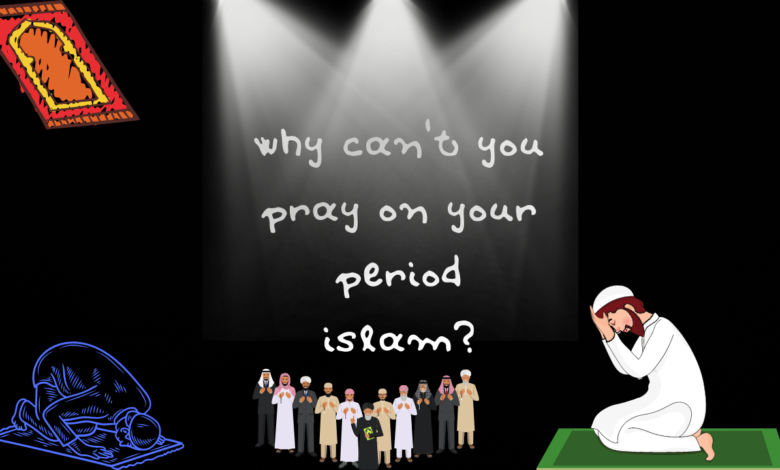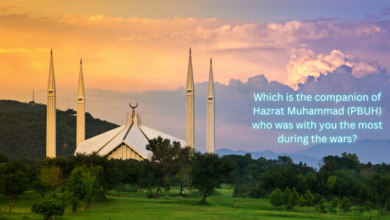why can’t you pray on your period islam?

Introduction
Islam is a religion that guides its followers on various aspects of life, including spirituality and religious practices. One such practice is the daily act of Salah, or prayer, which holds a significant place in the lives of Muslims. However, there are certain times when Muslims, particularly women, are exempt from performing Salah, and one of those instances is during menstruation. This practice often raises questions and curiosity among non-Muslims and even some Muslims themselves. This article seeks to explain the rationale behind the prohibition of praying during menstruation in Islam and the broader spiritual context in which it is situated.
The Significance of Salah in Islam
Salah is one of the Five Pillars of Islam, making it a fundamental religious duty for Muslims. It involves the act of physical and spiritual purification through specific movements and recitations while facing the Kaaba in Mecca. The daily prayers connect believers to their Creator and provide moments of reflection, supplication, and gratitude. The act of Salah serves as a means to strengthen one’s relationship with Allah and reinforce a sense of discipline and devotion in one’s life.
Menstruation and Ritual Purity
In Islam, maintaining ritual purity (Taharah) is essential for performing various acts of worship, including Salah. Ritual purity requires Muslims to be in a state of physical cleanliness and spiritual readiness. Menstruation is a natural biological process that temporarily interrupts a woman’s state of ritual purity. As a result, during menstruation, women are excused from performing certain acts of worship, including Salah.
The Wisdobm Behind the Prohibition
The prohibition of performing Salah during menstruation is not a punitive measure but rather a consideration of the holistic well-being of women. Islam acknowledges the physical and emotional discomfort that often accompanies menstruation. By exempting women from Salah during this time, Islam recognizes the need for rest and self-care.
Moreover, the wisdom behind this prohibition is rooted in the belief that Salah requires a certain level of focus, concentration, and physical engagement. Menstruation can be accompanied by discomfort, pain, and varying emotional states that might hinder one’s ability to fully engage in the prayers. This exemption acknowledges the temporary challenges women face and provides them the opportunity to prioritize their own well-being without the additional stress of performing the rigorous physical movements and mental focus required during Salah.
Maintaining Spiritual Connection
While women are excused from performing Salah during menstruation, it’s essential to note that their spiritual connection with Allah remains intact. Islam emphasizes the importance of intention (niyyah) in worship. While women may not engage in the formal prayers, they can continue to engage in supplications, recitation of Quranic verses, and other acts of worship that do not require physical movements. This allows them to maintain their spiritual connection even during this period of exemption.
Conclusion
The prohibition of praying during menstruation in Islam is not a restrictive measure but rather a compassionate and considerate approach that respects the natural physiological processes women experience. It acknowledges the temporary challenges women face during menstruation and prioritizes their well-being and comfort. This practice is a testament to the holistic nature of Islamic teachings that take into account both the spiritual and physical aspects of a believer’s life. Through this understanding, the Islamic practice underscores the balance between religious devotion and self-care, fostering a sense of compassion and mindfulness within the faith.
FAQs About Praying During Menstruation in Islam
Why can’t you pray during your period in Islam?
In Islam, women are exempt from performing the ritual prayers (Salat) during their menstruation due to the state of impurity associated with this natural bodily process.
What is the reasoning behind not praying during menstruation in Islam?
Menstruation is considered a state of impurity in Islamic teachings. Since ritual purity is a prerequisite for performing prayers, women are temporarily excused from praying during this period to maintain the sanctity of the act of worship.
Can a woman recite Quran or engage in Dhikr (remembrance of Allah) during her period?
Yes, women in their menstrual state are encouraged to engage in recitation of the Quran, Dhikr, and supplications. These acts of worship are not bound by the same purity requirements as the ritual prayers.
What should a woman do instead of praying during menstruation?
While refraining from the ritual prayers, women can focus on other forms of worship, such as reading or listening to the Quran, making Dhikr (remembrance of Allah), seeking knowledge, and making supplications.
When can a woman resume praying after her period ends?
A woman can resume praying as soon as her menstruation ends and she completes her post-menstrual purification process, which involves performing a ritual bath (Ghusl) to regain ritual purity.
Are there any exceptions for special prayers or circumstances during menstruation?
No, the prohibition of praying during menstruation applies to all forms of ritual prayers, including obligatory and voluntary prayers. However, there is no restriction on making Du’a (supplications) in any state.





